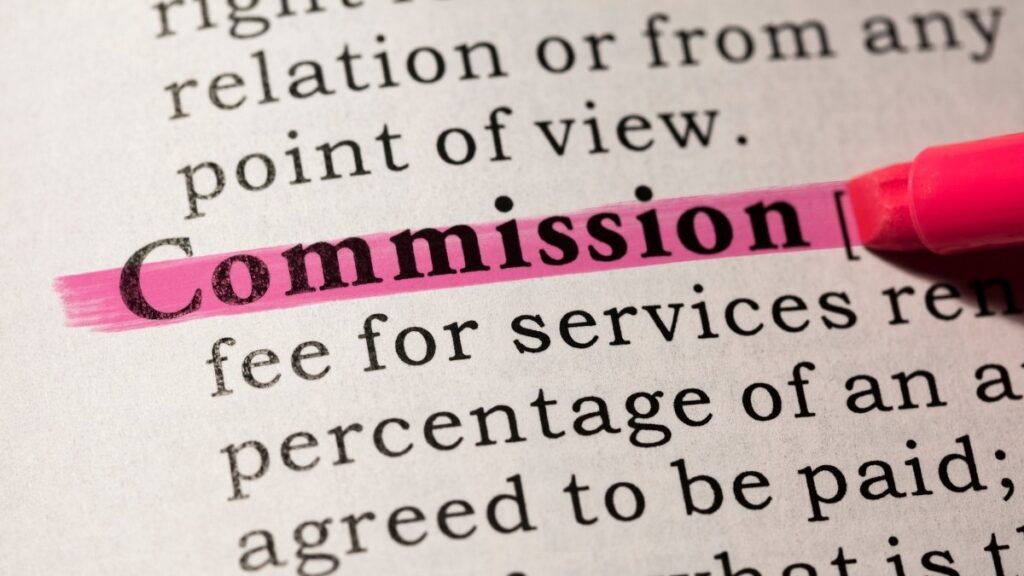
Americans pay some of the highest real estate agent commissions in the world, amounting to roughly $100 billion annually, yet many practices remain hidden from consumers.
Despite the NAR settlement changing commission rules, average buyer’s agent commissions have actually increased and “people are still as frustrated as they were before the commission lawsuit.” Real estate agent fees continue rising through hidden costs and commission tactics that most buyers and sellers never see coming.
This investigation reveals 14 specific ways agents legally maximize profits at your expense, backed by current industry data and insider confessions. Understanding these buyer agent fees and NAR settlement loopholes could save you thousands on your next transaction.
14 Real Estate Agent Money Grabs (And How to Fight Back)
You’re about to spend hundreds of thousands of dollars on a home. The last thing you need is your real estate agent playing games with hidden fees and sneaky tactics.
But here’s the truth: Some agents use tricks that cost you money. They know most people don’t understand how commissions work. They count on you not asking the right questions.
This guide shows you exactly what to watch for. You’ll learn how to spot these tactics and protect your money. Because when you’re buying or selling the biggest purchase of your life, every dollar matters.
The Commission Reality Check: Why Fees Haven’t Dropped
Everyone thought real estate fees would drop after the big NAR lawsuit settlement. They were wrong.

The average total commission jumped to 5.44% in 2025, up from 5.32% the year before. For a typical home selling for $367,711, you’re paying about $20,003 in agent fees.
Here’s what’s really happening:
The Split That Didn’t Split Seller’s agents now average 2.77% while buyer’s agents get 2.67%. The new rules were supposed to make sellers stop paying buyer’s agent fees. But most sellers still do it anyway. Why? Because homes with buyer’s agent compensation sell faster.
State-by-State Differences
Commission rates vary wildly by location. Some states see agents charging over 6%, while others hover around 4.5%. Your local market matters more than national averages.
The Luxury Home Exception Expensive homes ($1 million+) have lower commission rates at 2.17% for buyer’s agents. But cheaper homes under $500,000? Buyer’s agents are getting 2.49% – actually higher than before the settlement.
What This Means for You Don’t assume the NAR settlement saved you money. Commission rates are sticky. Agents found ways to keep their fees high. You need to negotiate harder than ever.
Red Flag to Watch: Any agent who says “commissions are set by law” or “rates are non-negotiable.” The settlement requires agents to tell you that “broker fees and commissions are fully negotiable and not set by law”.
Practice #1 – Administrative Fee Cash Grab
Your agent quotes a 2.5% commission. Sounds reasonable. Then closing day arrives, and you see a $750 “administrative fee” you never agreed to.

This is one of the oldest tricks in real estate.
How the Scam Works Brokerages add fees with fancy names like:
- “Transaction coordination fee”
- “Regulatory compliance fee”
- “Document preparation fee”
- “Administrative processing fee”
These fees range from $200 to $1,000. They’re pure profit for the brokerage.
The Backstory These fees exploded during the 2008 financial crisis. Brokerages were losing money and needed new revenue streams. They started offering agents higher commission splits (like 90/10 instead of 70/30). To make up the difference, they added these fees to your bill.
How to Spot Them
- Read your buyer or listing agreement carefully
- Ask: “Are there any additional fees beyond your commission?”
- Look for small print that mentions “transaction fees”
- Check closing statements for surprise charges
How to Fight Back
- Negotiate upfront: Tell your agent you won’t pay administrative fees. Get it in writing.
- Ask for fee-free brokerages: Some companies don’t charge these fees. Shop around.
- Read before you sign: Never sign agreements without reading fee sections.
- Know your rights: You can legally refuse these fees if they weren’t disclosed upfront.
Sample Script: “I see there’s a $500 administrative fee. I’m not comfortable paying fees beyond your commission. Can you remove this or find me an agent who doesn’t charge extra fees?”
The Bottom Line Administrative fees are almost always bogus. Real estate agents managed to do their jobs for decades without charging extra paperwork fees. Don’t let them start now.
Practice #2 – Dual Agency Double-Dipping
Your agent finds you the perfect house. What luck! But there’s a problem: They also represent the seller. This is called dual agency, and it’s a money grab disguised as convenience.

The Math Problem In dual agency, one agent collects commission from both sides. On a $400,000 house with 5% total commission, that’s $20,000 to one person instead of $10,000 each to two agents.
But here’s the kicker: The agent has no incentive to negotiate the best price for you.
Why Dual Agency Hurts You
As a Buyer: Your agent won’t push for lower prices because higher prices mean higher commissions. They know the seller’s bottom line, but they can’t share it with you.
As a Seller: Your agent won’t fight for top dollar because they want the deal to close fast and easy.
Real Case Study A dual agent in California cost their clients $500,000 in a deal gone wrong. The agent shared confidential information between both parties, violating their duty to both clients. The clients sued and won.
Limited Loyalty Problem In dual agency, agents owe “limited fiduciary duty” to both parties. Translation: They can’t fully represent anyone’s interests. They become deal facilitators, not advocates.
States That Banned It Alaska, Colorado, Florida, Kansas, Oklahoma, Texas, and Vermont have either banned dual agency or severely restricted it. There’s a reason why.
How to Protect Yourself
- Ask about representation upfront: Before touring any house, ask if the agent represents the seller.
- Decline dual agency: You have the right to say no. Find a different house or different agent.
- Get separate representation: If you love the house, hire your own agent to represent just you.
- Negotiate commission reduction: If you accept dual agency, the agent should reduce their total fee since they’re doing half the work.
Warning Signs
- Agent pushes you toward their own listings
- Agent discourages you from getting separate representation
- Agent says dual agency “saves you money” (it doesn’t)
- Agent won’t explain their duties in dual agency
The best deals happen when you have someone fighting just for you. Don’t give up that advantage to make your agent richer.
Practice #3 – Pocket Listing Profit Maximization
Your agent tells you they have an “exclusive” property not on the market yet. Sounds special, right? It might be a pocket listing scam.

What Are Pocket Listings? These are properties for sale that don’t appear on the Multiple Listing Service (MLS). Only certain agents know about them. The agent represents both buyer and seller, collecting the full commission.
The Money Grab Explained Instead of splitting commission with another agent, pocket listing agents keep everything. On a $500,000 sale with 5% commission, that’s $25,000 in their pocket instead of $12,500.
Why This Hurts You
As a Seller: Your home gets less exposure. Fewer buyers means lower offers. You might accept $480,000 when you could have gotten $520,000 with full market exposure.
As a Buyer: You pay more because there’s no competition from other buyers’ agents pushing for better deals.
The NAR Battle The National Association of Realtors created the “Clear Cooperation Policy” to stop this practice. All listings must appear on MLS within one business day. But enforcement varies by market.
Compass vs. Everyone Real estate giant Compass got in trouble for encouraging pocket listings. Other brokerages complained it gave Compass unfair advantages. The fight continues in courts and regulatory meetings.
How to Spot Pocket Listing Schemes
- Agent promises “exclusive access” to properties
- Pressures you to move fast on off-market deals
- Represents both sides of multiple transactions
- Won’t show you similar MLS listings for comparison
Questions to Ask Your Agent
- “How many pocket listings have you done this year?”
- “Will you put my home on MLS immediately?”
- “Do you have financial relationships with any buyers you’re bringing to my property?”
How to Protect Yourself
Sellers: Demand MLS listing within 24 hours. No exceptions.
Buyers: Ask to see MLS comparisons before making offers on “exclusive” properties.
The Bottom Line Legitimate pocket listings exist for privacy reasons (celebrities, messy divorces). But most are agent money grabs. The best price comes from open market competition, not secret deals.
Practice #4 – Marketing Fee Manipulation
Your listing agent shows you a fancy marketing plan with professional photos, virtual tours, and online advertising. Then they hand you a bill for $8,000 in marketing fees. Whether your house sells or not.

The Real Cost Breakdown Professional photography: $300-500 Online listings: $50-200
Basic marketing materials: $200-400 Social media ads: $500-1,000
Total actual cost: $1,050-2,100
So where does the other $6,000 go? Agent profit.
How Agents Inflate Marketing Costs
The “Premium Package” Upsell: Agents offer basic vs. premium marketing. The premium costs $5,000 more but includes services that should be standard.
Hidden Admin Fees: They charge $200 for “listing coordination” or $300 for “marketing setup.” These are just admin tasks.
Mandatory Add-ons: Some agents require expensive staging consultations or professional cleaning services from their preferred vendors (who pay kickbacks).
What Should Be Included for Free Your commission already covers:
- Basic professional photos
- MLS listing
- Standard online syndication (Zillow, Realtor.com)
- Basic marketing materials
- Agent time and expertise
Red Flags to Watch For
- Upfront marketing fees regardless of sale outcome
- Pressure to use specific photographers or stagers
- Marketing packages that cost more than 0.5% of your home’s value
- Fees buried in fine print of listing agreements
How to Fight Back
- Get itemized costs: Ask for specific breakdowns of all marketing expenses.
- Compare packages: Interview agents who include marketing in their commission.
- Negotiate cap limits: If you agree to marketing fees, set maximum amounts.
- Success-based only: Marketing fees should only be charged if your home sells.
Sample Contract Language: “Marketing expenses will not exceed $1,500 and will only be charged upon successful closing. Agent will provide itemized receipts for all expenses.”
The Bottom Line Marketing is part of an agent’s job. If they can’t afford basic marketing costs, they shouldn’t be in real estate. Don’t subsidize their business expenses with separate fees.
Practice #5 – CMA Manipulation for Listing Wins
Your agent shows up with a Comparative Market Analysis (CMA) that says your home is worth $50,000 more than other agents estimated. You’re thrilled and sign with them immediately.

Three weeks later, they suggest dropping the price by $60,000 because the market “shifted suddenly.”
This is CMA manipulation, and it’s designed to win listings, not get you the best price.
How the Scam Works
The High-Ball Listing: Agents inflate your home’s value in their CMA to win your business. They use questionable comparables or ignore market conditions.
The Reality Check: After you’re locked in with a listing agreement, they push for price reductions. “The market is speaking,” they’ll say.
The Low-Ball Buying: For buyers, agents show CMAs with low comparables to justify lowball offers. This helps close deals faster.
Real CMA Red Flags
- Comparables from different neighborhoods or school districts
- Using sold prices from 6+ months ago in fast-changing markets
- Cherry-picking only the highest or lowest sales
- Ignoring obvious differences in condition or features
- No explanation of their pricing methodology
How to Verify CMA Accuracy
- Check recent sales yourself: Look up sold properties on Zillow or Realtor.com
- Get multiple CMAs: Interview at least three agents and compare their estimates
- Ask about methodology: How did they choose comparables? What adjustments did they make?
- Look at current listings: What are similar homes listed for right now?
Questions to Ask Your Agent
- “Show me the three most similar sales from the past 60 days”
- “How did you adjust for differences in square footage, condition, and location?”
- “What would you price this home at if you were buying it as an investment?”
Protect Yourself from CMA Games
Sellers: Don’t pick the agent with the highest estimate. Pick the one who explains their numbers best.
Buyers: Get independent market research before making offers. Don’t rely only on your agent’s CMA.
The Honesty Test Ask potential agents: “What would you price my home at to sell within 30 days?” Their answer reveals if they’re realistic or just trying to win your business.
Honest agents give you realistic pricing from day one. Manipulative agents tell you what you want to hear, then crush your hopes later.
Practice #6 – Buyer Agreement Lock-In Tactics
New rules require you to sign a buyer’s agreement before touring homes. Smart agents use this to lock in high commission rates before you know what you’re doing.

The New Reality Since August 17, 2024, real estate agents must enter into written agreements with buyers before touring homes. The agreement must include their compensation amount and specify that commissions are negotiable.
How Agents Exploit the Rules
Pressure Timing: They want you to sign immediately. “We need to see that house today, and I need this agreement first.”
High Rate Lock-In: They push for 3% commissions in markets where 2.5% is normal.
Exclusive Terms: The agreement makes you work only with them, even if they provide terrible service.
Penalty Clauses: Some agreements charge you fees if you fire them or buy directly from a seller.
What Your Agreement Should Include
Compensation Details: Exact commission percentage or dollar amount
Duration: How long you’re locked in (30-60 days maximum to start)
Services Included: What exactly will they do for their commission?
Exit Clause: How to terminate the agreement if needed
Expense Limits: Maximum out-of-pocket costs you might pay
Negotiation Points Before Signing
- Commission Rate: Start at 2% and negotiate up only if justified
- Time Limit: Begin with 30 days, not 6 months
- Geographic Area: Limit to specific cities or neighborhoods
- Exit Rights: Include 24-48 hour termination notice
- Performance Standards: Minimum showings per week or response times
Red Flags in Buyer Agreements
- No exit clause or penalty fees for termination
- Commission rates above local market averages
- Vague service descriptions
- Long time commitments (90+ days)
- Requirements to use specific lenders or inspectors
Sample Negotiation Script: “I’m comfortable with a 2.5% commission for 30 days in [specific area]. I want a 48-hour termination clause and no penalty fees. Can we adjust the agreement to include these terms?”
Your Rights You can negotiate every part of the buyer’s agreement. Don’t let agents pressure you into signing unfavorable terms just to see houses quickly.
Practice #7 – Referral Kickback Schemes
Your agent recommends a mortgage broker, home inspector, and moving company. They all provide great service. What they don’t tell you: They’re all paying your agent referral fees.

This violates federal law and creates conflicts of interest.
How RESPA Violations Work The Real Estate Settlement Procedures Act (RESPA) prohibits licensed real estate agents from receiving payments from service providers. But violations happen constantly.
Common Kickback Arrangements
- Mortgage brokers pay $500 per referral
- Title companies provide “marketing co-op” payments
- Home inspectors give agents gift cards or cash
- Insurance agents share commissions
- Contractors pay for referrals
Why This Hurts You Your agent recommends services based on who pays them, not who’s best for you. You might get:
- Higher mortgage rates
- Rushed inspections that miss problems
- Overpriced insurance
- Poor quality contractors
How to Identify Potential Kickbacks
Warning Signs:
- Agent insists on specific service providers
- Gets defensive when you ask about alternatives
- Has unusually close relationships with vendors
- Pushes you toward services you don’t need
Questions to Ask:
- “Do you receive any compensation from companies you recommend?”
- “Can you provide three options for each service?”
- “What’s your relationship with these vendors?”
- “Are there any financial arrangements I should know about?”
Legal Requirements Agents must disclose any financial relationships with service providers. If they don’t, they’re breaking federal law.
How to Protect Yourself
- Get independent referrals: Ask friends, family, and online reviews for recommendations
- Shop around: Always get quotes from at least three providers
- Ask about agent relationships: Directly question any financial connections
- Report violations: Contact your state real estate commission if you suspect RESPA violations
The Bottom Line Your agent should recommend services based on quality and price, not who pays them the most. Independent research protects you from agents who prioritize their wallet over your interests.
Practice #8 – Artificial Urgency and Pressure Tactics
“Another buyer is coming to see this house in an hour. We need to make an offer now!” Sound familiar? You might be dealing with artificial urgency tactics.

Common Pressure Phrases
- “Prices are going up every day”
- “This is the best deal I’ve seen all year”
- “The seller has another offer coming in tonight”
- “If we don’t buy today, you’ll regret it forever”
- “The market is so hot, this won’t last”
How Agents Create False Urgency
Phantom Buyers: They claim other buyers are interested without proof
Fake Offer Stories: “Someone else offered asking price” when no offers exist
Market Manipulation: Exaggerating market trends to create panic
Limited Time Pressure: “This price is only good today” tactics
Inventory Scarcity: “Nothing else like this will come available” claims
The Reality Check Questions
Before making rushed decisions, ask:
- “Can I see proof of other offers?”
- “What exactly will happen if we wait 24 hours?”
- “How many similar properties have sold this month?”
- “Can we verify these market claims with MLS data?”
Legitimate vs. Artificial Urgency
Real Urgency:
- Multiple offer situations with proof
- Price increases with specific effective dates
- Limited inventory supported by market data
- Genuine seller deadlines (job relocation, etc.)
Fake Urgency:
- Vague claims without evidence
- Pressure without supporting documentation
- Stories that change when questioned
- Rushing you past important decisions
How to Counter Pressure Tactics
- Slow down: Take time to think through major decisions
- Verify claims: Ask for documentation of competing offers or market data
- Get second opinions: Call other agents or check online market data
- Set boundaries: Tell your agent you don’t make major decisions under pressure
- Trust your instincts: If something feels rushed, it probably is
Sample Response: “I understand there might be urgency, but I need to verify this information and think it through. Can you provide documentation of the competing offers? I’ll give you an answer by tomorrow morning.”
The Bottom Line Good deals don’t require high-pressure tactics. Agents who rush you are often hiding something or trying to close deals quickly for their own benefit, not yours.
Practice #9 – Selective Offer Presentation
By law, your agent must present every offer on your property. But some agents “forget” to show you offers that don’t benefit them financially.

How Selective Presentation Works
Dual Agency Steering: Agents prioritize offers from buyers they also represent because they collect double commission
Brokerage Favoritism: In-house offers get preference over outside offers
Higher Commission Bias: Offers with better agent compensation get priority
Quick Close Preference: Agents push offers that close faster, even if they’re lower
Real Example A seller received three offers: $400,000 cash from an outside buyer, $405,000 with financing from their agent’s buyer, and $398,000 from another brokerage. The agent only presented the $405,000 offer, claiming the others “had issues.”
Your Legal Rights Agents have fiduciary duty to present all offers promptly and fairly. They must:
- Show you every written offer
- Present offers in the order received
- Include all terms and conditions
- Give you time to review before responding
- Explain pros and cons of each offer objectively
Signs of Selective Presentation
- Agent discourages certain offers without clear reasons
- Claims some offers “aren’t worth considering”
- Shows obvious favoritism toward specific buyers
- Rushes you to accept offers from their clients
- Avoids discussing competing offers in detail
How to Protect Yourself
- Demand all offers: Tell your agent upfront that you want to see every written offer
- Ask direct questions: “How many offers have we received? Can I see all of them?”
- Set clear expectations: Include offer presentation requirements in your listing agreement
- Get copies: Request written copies of all offers for your records
- Track interest: Ask for updates on showing feedback and buyer interest
Red Flag Conversations
- “This offer isn’t worth your time”
- “Trust me, this is the best one”
- “The other offers have too many problems”
- “You should accept this one quickly”
What to Include in Your Listing Agreement: “Agent agrees to present all written offers within 24 hours of receipt and provide copies of all offers to seller for review.”
The Bottom Line You’re the boss. Every offer deserves your consideration, not your agent’s filtration. Demand to see everything so you can make informed decisions.
Practice #10 – Inflated Service Claims vs. Reality
Your agent charges premium rates and promises exceptional service. But here’s what you might not know: NAR data shows median net income for agents is only $25,000 after expenses.

Many agents charging top dollar provide bottom-tier service.
The Service-Fee Disconnect
What They Promise:
- 24/7 availability
- Professional marketing
- Expert negotiation
- Market expertise
- Full-service support
What You Often Get:
- Delayed responses to calls and texts
- Basic photos and generic listings
- Cookie-cutter contract negotiations
- Outdated market knowledge
- Referrals to expensive service providers
How to Evaluate Real Service Value
Marketing Quality Checklist:
- Professional photography (not phone pics)
- Detailed property descriptions
- Multiple listing syndications
- Social media promotion
- Virtual tours for higher-priced homes
Communication Standards:
- Response time commitments (within 2-4 hours)
- Regular market updates
- Proactive status reports
- Available contact methods
Negotiation Skills:
- Demonstrates market knowledge
- Explains strategy clearly
- Protects your interests first
- Has successful track record
Performance Metrics to Track
For Sellers:
- Days on market compared to local average
- Sale price vs. listing price ratio
- Number of showings generated
- Marketing reach and engagement
For Buyers:
- Houses shown per week
- Successful offer ratio
- Average time to find suitable properties
- Negotiation success stories
Questions to Ask Potential Agents
- “What’s your average days on market?”
- “How many homes did you sell last year?”
- “Can I speak with three recent clients?”
- “What makes your service worth a premium commission?”
- “How do you measure your own performance?”
Service Comparison Strategy
Create a simple scorecard:
- Communication quality (1-10)
- Marketing effort (1-10)
- Market knowledge (1-10)
- Negotiation skills (1-10)
- Overall value (1-10)
The Reality Check Don’t pay premium prices for average service. Many agents charging 3% provide the same service as agents charging 2.5%. Shop around and compare actual service delivery, not promises.
Warning Signs of Low-Value Agents
- Generic marketing materials
- Poor response times
- Limited market knowledge
- Cookie-cutter approaches
- Defensive about their rates
High fees should equal high service. If they don’t, find an agent who delivers value for their commission.
Practice #11 – Self-Dealing Property Conflicts
Your agent shows you a “perfect” house. The price seems fair, and they’re pushing for a quick offer. Later you discover they have an ownership interest in the property.

This is self-dealing, and it’s a major conflict of interest.
How Self-Dealing Works
Direct Ownership: Agent owns the property through personal name or LLC
Family Connections: Property belongs to spouse, children, or relatives
Business Partnerships: Agent has investment stake with seller
Hidden Relationships: Financial arrangements not immediately obvious
Why This Matters When agents have financial interests in properties, they can’t represent you objectively. Their profit matters more than your best deal.
Required Disclosures Agents must reveal any ownership interest or family relationships in properties they show you. This disclosure should be:
- In writing
- Before you make an offer
- Clear and specific about the relationship
- Acknowledged by you with signature
Common Self-Dealing Scenarios
The Flip House: Agent bought, renovated, and is now selling through their own listing
Family Sales: Agent represents buyers for their spouse’s property sale
Investment Partners: Agent has ownership stake in properties they show
Corporate Ownership: Agent’s brokerage owns properties in their inventory
Red Flags to Watch
- Agent pushes specific properties without clear reasons
- Refuses to show comparable properties
- Gets defensive when you ask about relationships
- Discourages inspections or appraisals
- Rushes you through decision process
Questions to Ask
- “Do you have any ownership interest in this property?”
- “Are you related to or in business with the seller?”
- “Does your brokerage have any financial interest here?”
- “Are there any conflicts of interest I should know about?”
How to Protect Yourself
Get Independent Advice: Have another agent or attorney review deals involving your agent’s properties
Demand Full Disclosure: Don’t proceed without written disclosure of all relationships
Independent Appraisal: Get professional appraisal for agent-owned properties
Shop Around: Compare similar properties before making decisions
Legal Protections Self-dealing without proper disclosure can void contracts and create legal liability for agents. Document everything and report violations to your state real estate commission.
The Bottom Line There’s nothing inherently wrong with buying agent-owned properties. But you deserve full disclosure and fair treatment. Hidden conflicts put your interests at risk.
Practice #12 – Premium Pricing for Standard Service
Despite all the market changes, many agents still charge 5.5-6% total commissions for the same basic services they’ve always provided.

The Pricing Reality National average commission is 5.44% total, with listing agents earning 2.77% and buyer’s agents getting 2.67%. But many agents still quote higher rates out of habit or profit motivation.
What “Standard Service” Actually Includes
- Property listing on MLS
- Basic professional photos
- Standard marketing materials
- Showing coordination
- Offer negotiation
- Transaction management through closing
Services That Don’t Justify Premium Pricing
- Email and phone communication (basic expectation)
- Market knowledge (required for licensing)
- Contract paperwork (standard forms)
- Attending closings (part of the job)
- “Years of experience” (service quality matters more)
Alternative Service Models Available
Discount Brokerages: Full service at 2-2.5% total commissions
Flat Fee Services: Fixed pricing regardless of home value
Limited Service Options: Pay only for specific services you need
FSBO Support: Help with contracts and negotiations only
iBuying Programs: Direct sale to companies (though usually at lower prices)
How to Negotiate Better Rates
- Get multiple quotes: Interview at least 3-4 agents
- Compare actual services: Don’t pay extra for standard offerings
- Negotiate total packages: Consider both listing and buying agent fees
- Time your negotiations: Agents may reduce fees in slow markets
- Bundle services: Some discounts available for repeat customers
Market Timing Strategies
Best Times to Negotiate:
- Slow winter months
- When inventory is high
- End of agents’ fiscal quarters
- During market downturns
Avoid Peak Times:
- Spring selling season
- Low inventory periods
- Hot seller’s markets
Questions for Rate Justification
- “What additional services do you provide for your higher rate?”
- “How do you add more value than agents charging less?”
- “Can you match the 2.5% rate offered by [competitor]?”
- “What’s your track record compared to discount agents?”
The Bottom Line Standard real estate services shouldn’t cost premium prices. Technology has made agents more efficient, not more expensive. Don’t pay 2010 rates for 2025 services.
Practice #13 – Technology Fee Add-Ons
Your agent’s commission covers their services, right? Wrong. Many agents now charge separate fees for basic technology that should be included in their standard rate.

Common Technology Fee Tricks
Digital Marketing Fees: $200-500 for social media posts and online ads
Website Listing Charges: $100-300 for Zillow, Realtor.com syndication
Virtual Tour Fees: $300-800 for basic 3D home tours
Photography Upgrades: $200-600 for “professional” photos vs. “standard” ones
Online Platform Access: $150-400 for buyer portal or app access
What Should Be Included for Free Modern real estate agents should provide:
- Professional photography
- MLS listing with photo syndication
- Basic online marketing
- Digital communication tools
- Electronic document signing
- Market data access
How Technology Actually Reduced Agent Costs
Old Days (Pre-2000):
- Physical photo development and printing
- Newspaper advertising costs
- Fax machine and phone expenses
- Physical document storage
- In-person meetings for everything
Today’s Reality:
- Digital photos cost nothing after initial shoot
- Online listings are automated and cheap
- Email and text communication
- Cloud storage and electronic signatures
- Virtual meetings and tours
Technology made agents more efficient and reduced their costs. So why are they charging you more for it?
Legitimate vs. Money Grab Fees
Reasonable Technology Costs:
- High-end drone photography for luxury homes
- Professional video production
- Advanced staging software
- Premium marketing platforms
Money Grab Charges:
- Basic MLS syndication
- Standard digital photos
- Email communication tools
- Electronic signature platforms
- Basic website listings
How to Avoid Technology Fee Traps
- Ask upfront: “Are there any additional technology fees beyond your commission?”
- Get itemized lists: Request specific breakdown of what each fee covers
- Compare alternatives: Find agents who include technology in their commission
- Negotiate bundling: Push for all-inclusive commission rates
- Question value: Ask how technology fees improve your outcome
Sample Contract Language: “Agent commission includes all standard technology services including professional photography, MLS listing, online syndication, and digital marketing. No additional technology fees will be charged.”
The Bottom Line Technology should make real estate cheaper, not more expensive. Don’t pay extra fees for tools that modern agents should already have.
Practice #14 – Commission Splitting Opacity
Your agent quotes a 2.5% commission rate. Sounds reasonable until you learn they’re keeping only 60% while their brokerage takes 40%. This affects their motivation and service quality.

How Commission Splits Work
New Agents: Often get 60/40 or 50/50 splits with their brokerage Experienced Agents: May negotiate 70/30, 80/20, or 90/10 splits Top Producers: Sometimes get 95/5 splits or flat monthly fees
Why This Matters to You
Low Split Agents: May rush deals to close more volume and compensate for lower per-deal income
High Split Agents: Can afford to spend more time and money on your transaction
Brokerage Pressure: Agents with low splits face more pressure to generate brokerage revenue
Bonus Structures That Affect You
Volume Bonuses: Agents get extra money for closing more deals (encourages rushing)
Revenue Targets: Monthly quotas that create end-of-month pressure
Marketing Allowances: Brokerages provide marketing budgets tied to production levels
Lead Generation: Company-provided leads create dependency and pressure
Questions to Ask Your Agent
- “What’s your commission split with your brokerage?”
- “Do you have volume quotas or bonuses?”
- “How does your brokerage compensation affect your service to me?”
- “Are you under any pressure to close deals quickly?”
Red Flags in Agent Compensation
- Agent won’t discuss their brokerage arrangements
- Heavy emphasis on quick closings
- Pressure to use brokerage-affiliated services
- Focus on transaction volume over individual attention
- End-of-month urgency that seems artificial
How Splits Affect Service Quality
Agents with Low Splits:
- May provide less individual attention
- Could pressure you toward quicker decisions
- Might use cheaper service providers
- May focus more on volume than quality
Agents with High Splits:
- Can invest more in marketing your property
- May provide more personalized service
- Less pressure to rush transactions
- Better able to negotiate on your behalf
The Bottom Line Understanding your agent’s compensation structure helps you understand their motivations. Agents who keep more of their commission can often provide better service because they’re not splitting their income multiple ways.
This doesn’t mean high-split agents are automatically better, but it explains why some agents seem more motivated than others.
Conclusion: Your Money, Your Rules
Real estate agents work for you, not the other way around. But too many homebuyers and sellers forget this basic truth when facing high-pressure sales tactics and confusing fee structures.
The Key Takeaways:
Commission rates haven’t dropped despite the NAR settlement. You need to negotiate harder than ever.
Hidden fees are everywhere – from administrative charges to technology add-ons. Read every agreement carefully.
Conflicts of interest hurt you – whether it’s dual agency, pocket listings, or self-dealing properties.
Service quality varies wildly among agents charging similar rates. Don’t pay premium prices for basic service.
Your Protection Strategy:
- Interview multiple agents and compare their actual services, not their promises
- Negotiate everything – commissions, fees, contract terms, and service expectations
- Read before you sign any agreement, and don’t let agents rush you through paperwork
- Get independent verification of market data, property values, and service claims
- Consider alternative models like discount brokerages, flat-fee services, or limited representation
The Bottom Line Real estate is probably your biggest financial transaction. Don’t let agent tricks cost you thousands of dollars. Stay informed, ask hard questions, and remember that good agents welcome educated clients.
The best deals happen when you understand the game and know how to play it. Now you do.
Take Action Today:
- Save this guide for your next real estate transaction
- Share it with friends and family who might be buying or selling
- Interview agents using the questions provided
- Negotiate fees based on actual value delivered
Your financial future is worth the extra effort to get it right.






